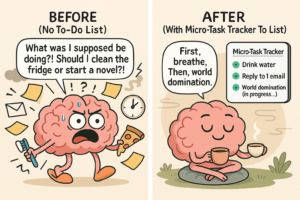How often to meditate?

Meditation is one of the most powerful ways to calm your mind and connect with yourself on a deeper level. When you frequently practice mindfulness, you build a state of constant awareness that can help improve your general mental well-being. But how often should you actually meditate? And how should you go about doing it? In this article, we’ll cover everything you need to know about daily meditation and its benefits. From the types of meditation that are ideal for beginners to those that are better reserved for more experienced practitioners, let us take you through everything you want to know about daily meditation.
What is daily meditation?
Daily meditation is the practice of meditation every single day. Ideally, you should meditate at the same time every day, allowing your meditation routine to become a part of your daily life. While it’s certainly possible to meditate in short bursts, it’s rare to find people who are able to meditate in a consistent manner. If you’re looking to improve your mental well-being, it’s important to develop a daily meditation practice. Daily meditation is a great way to become more mindful and connect with yourself on a deeper level. The benefits of meditation are numerous, including improved concentration, sleep quality, stress reduction, and reduced anxiety.
Why meditate daily?
There are so many great reasons to start meditating regularly. Aside from the fact that it can help you relax, meditation is also incredibly beneficial for your mental and physical health. Research shows that meditation has a positive effect on your mental health as well as your physical health. One of the most important reasons to daily meditate is the fact that it improves brain health. The human brain is only so big, so it’s important to take advantage of it while you have it. Meditation promotes a healthy brain, with research showing that regular meditation can reduce your risk of developing anxiety, depression, and other mental health issues.
Popular types of meditation for daily practice
– Guided meditation – The most popular form of meditation is guided meditation. This type of meditation has a specific structure that allows you to access different states of consciousness. The goal of guided meditation is to get you into a deeply relaxed state, which is necessary for learning how to introspect. – Mindfulness meditation – Mindfulness is the act of paying attention on purpose, especially on the things that matter most. With mindfulness, you learn to be present and to take care of your emotional well-being. – Somatic psychotherapy – This type of meditation uses your body to help you access your state of mind. Instead of focusing on your thoughts, you’re guided to focus on your breathing and the sensations in your body.
Not all forms of meditation are suitable for daily practice
There are a number of forms of meditation that are better suited for a daily practice, such as yoga, light, and breathing exercises. These types of meditation have a more physical focus, which allows them to have a more immediate impact on your state of mind. You should also be careful if you try to incorporate all types of meditation into your daily practice. While many forms of meditation can have beneficial effects, they all rely on individual mental health. Some forms of meditation can be particularly intense, and if you’re susceptible to mental health issues, it’s important to avoid them.
Different types of breathing exercises are useful for different purposes
There are a number of different breathing exercises you can use for daily meditation, including diaphragmatic breathing, abdominal breathing, and even guided visualization. Diaphragmatic breathing is a great form of meditation for beginners, as it’s simple and easy to perform. A breathing exercise is more effective if you do it regularly, even if you’re not trying to channel the effects at that precise moment. As meditation becomes a part of your daily routine, you’re more likely to reap its benefits.
Conclusion
Daily meditation is an important part of your mental health. The benefits of meditation are numerous, including improved concentration, sleep quality, stress reduction, and reduced anxiety. The most important thing to remember is that you need to stick with it. If you’re only doing it for a day, chances are you’re not getting much out of it. So, get yourself a pair of comfortable shoes, a comfortable outfit and a comfortable place to sit. You can also use a meditation ball or music to help you focus. If you want to reap the benefits of daily meditation, you’ll need to get into the habit. The key is to make it a part of your daily routine, so you don’t feel like you’re doing it at all. Find a time when your mind is free from distractions, and you’re not likely to be interrupted. Make sure it’s a time when you’re not likely to be interrupted, either. Finally, ensure you have everything you need before you begin. Daily meditation is an important part of your mental health. The benefits of meditation are numerous, including improved concentration, sleep quality, stress reduction, and reduced anxiety. The most important thing to remember is that you need to stick with it. If you’re only doing it for a day, chances are you’re not getting much out of it. So, get yourself a pair of comfortable shoes, a comfortable outfit and a comfortable place to sit. You can also use a meditation ball or music to help you focus. If you want to reap the benefits of daily meditation, you’ll need to get into the habit. Make it a part of your daily routine, so you don’t feel like you’re doing it at all. Find a time when your mind is free from distractions, and you’re not likely to be interrupted. Make sure it’s a time when you’re not likely to be interrupted, either. Finally, ensure you have everything you need before you begin.





